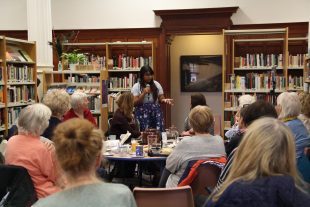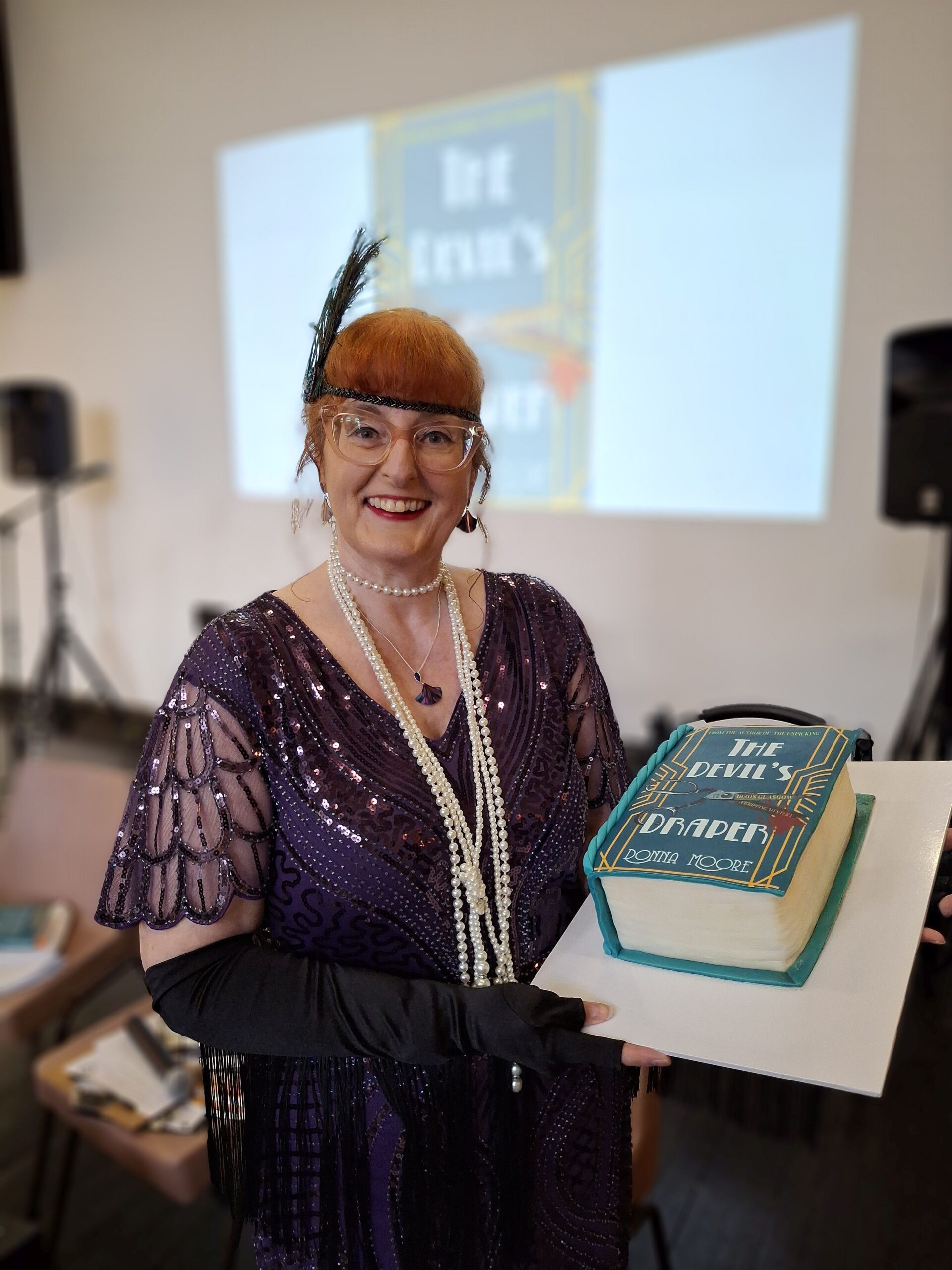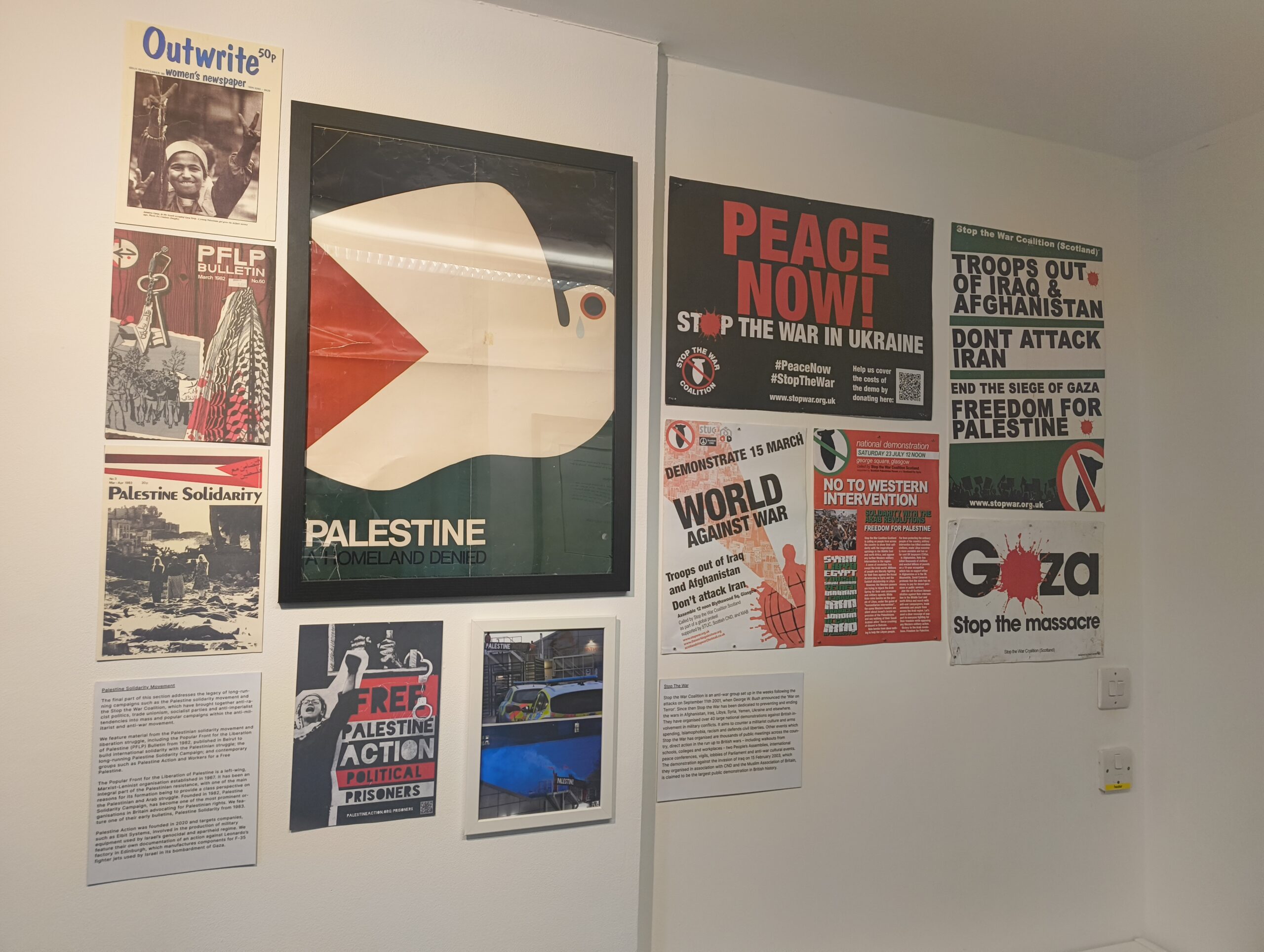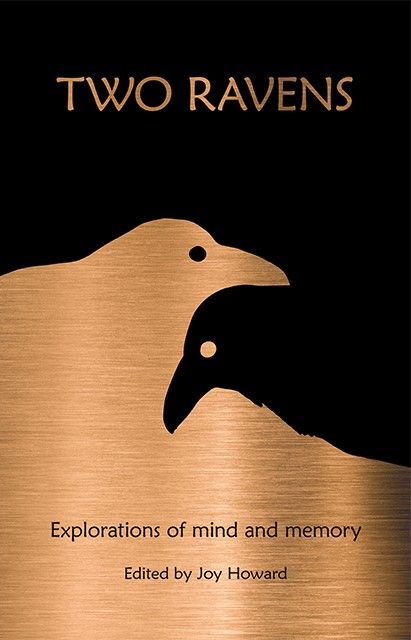Lily volunteered with us in 2019 and helped to deliver a Story Cafe introducing some Italian writers. In this post she explains what to expect from one of these events and shares why she feels these reading out loud sessions are so valuable and pleasurable.

Just like many unbeatable dishes some of the most fruitful and enjoyable events consist of a few basic ingredients. A few months ago, I spent most of my Tuesdays, Thursdays and Fridays volunteering at GWL. Thursday lunchtime at GWL is Story Café time, and this reliably cosy and much-loved event soon became one of my favourites at the library. The basic ingredients of the Story Café are: a reader (usually, it’s our librarian Wendy, otherwise a guest reader), a book, curious participants, and a big round table packed with a huge teapot, lots of cups and snacks. And sometimes, if it turns out to be a busy Thursday, a mic to make sure everyone can hear the story.
True, some Story Cafés are fancier than others – for instance when writers read from their own work, perhaps even the first time ever, or when a group of authors share texts about the same topic. But the genius and popularity of the Story Café in general lies indeed in its simplicity – at the heart of it lies something which was very popular indeed for a big chunk of human history. For obvious reasons, really. Until the 19th century, shared reading and storytelling were widespread because society was less individualistic and leisure activities were common ones. Also, many people simply couldn’t read, or couldn’t afford to buy their own books, public libraries may not have been accessible either. And there weren’t any distractions in the shape of TV, radio or of course the internet. In contemporary Western societies, we are often distracted by moving images on seductive screens all over the place, under time pressure, and may not be used to the practice of shared reading.
We’ve all heard how much kids benefit from being read stories to, and there’s no reason to assume that the same isn’t true for adults.
If you take some time to slow down and listen to someone reading out a story, you’re likely to discover writers and topics you’re not aware of or don’t think to be interested in. At virtually every Story Café, I’ve heard women say that they had become aware of this or that and that they had become curious. I do like to think that, when I had the chance to read at the Story Café, I managed to introduce two Italian authors who don’t have an audience in the UK otherwise. Listening to a story also allows you to access your already existing interests, passions and emotions, perhaps from a new viewpoint. That’s not always easy – I’ve seen women laughing but also raging because of what they’d listened to. But then, the Story Café is also a great environment to be confronted with certain such things – it’s a friendly and safe women-only event and can be a great space to confront them. Then, listening can help to sharpen your focus and visual memory. Personally, I always felt newly encouraged to read more, especially more poetry, which I’m currently trying to integrate into my lunchbreaks. And it allows your mind to travel, to imagine all sorts of things, and it can be wonderfully nostalgic – and remind you of what seems like an easier time, when you were sitting on the knee of a beloved one, listening to a story. Last but definitely not least, shared reading is also a measure to increase accessibility to texts helping to create new, enjoyable and encouraging ways of engaging with words on paper.
So much for the listener. If you’re the reader, you’ll improve your fluency, intonation, vocabulary and spelling without even noticing it. Then, raising your voice in front of others is likely to boost your confidence and to help you to find your voice, quite literally. Reading out loud might also slow you down and allow you to look at the text with more scrutiny and a critical spirit.
Finally, there is, of course, the element of community from which readers and listeners benefit. It is often easier and more enjoyable to explore a topic together. I was often amazed to see where a story or a poem can take a group of enthusiasts in a conversation, under four eyes or in the bigger group. Then, like any social event, it’s an excellent opportunity meet people with similar interests, and to realise that you’re not alone with your thoughts and worries, questions or points of view.
Now, bearing in mind all those amazing benefits of shared reading, you’ll wonder why on earth it isn’t promoted and practiced more widely.
Reading together might not have achieved its old status (yet?), but things are happening. Audiobooks, podcasts and oral storytelling have become more and more popular recently, which means we do have a hunger for listening. And the value and success of GWL’s Story Café is by no means unnoticed – the project led to GWL being shortlisted for CILIP’s UK-wide Libraries Change Lives Award in 2017.
So if you’re curious about the quiet revival of the ancient practice of shared reading, there’s one perfect place to start: the ground floor of GWL at 12.30pm on (most) Thursdays. Please check our calendar of events for the dates of upcoming Story Cafés.






